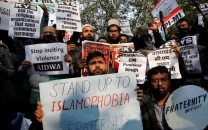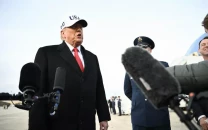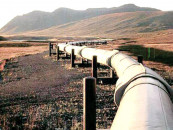Afghan transitions and scenarios
Real issue between Pakistan, Afghanistan is not border management but sourcing out borders to militants, warlords.

The writer is an ANP member of the Senate of Pakistan
The transition that is most talked about these days is the presidential election, which is to be held in April next year. After the commencement of the Bonn process, it is the first election which President Hamid Karzai will not be contesting. Afghans are both excited and concerned about the presidential election as it can become a defining moment for the nascent democracy.
Interestingly, the least talked about transition is the one that would come about through reconciliation. This important transition lies on the back burner right now. Political observers are of the opinion that much will depend on the signing of the Bilateral Security Agreement (BSA) between Afghanistan and the US. Results of the Afghan presidential election will be an important factor in shaping the future reconciliation process.
The real question is how far the cumulative impact of the aforementioned transitions can lead Afghanistan towards establishing peace and strengthening democracy. It is clear that unlike in the 1990s, almost all important international powers are deeply interested in the peace and stability of Afghanistan. Highly credible diplomatic sources in Kabul say that China and Russia have given a green signal to the Afghan government to enter into the BSA with the US for maintaining a small US force in Afghanistan. Russia has a few thousand troops stationed near the Afghan-Tajik border, which can get sucked in the conflict if it escalates. China can face the fallout of a chaotic Afghanistan in Xinjiang. So, all the stakeholders are bracing for the post-withdrawal scenarios. On November 10, there was a meeting among the diplomats of China, Russia and India in Delhi. All three countries have agreed to work together for peace and stability in Afghanistan. The new Iranian government is in the process of re-evaluating the country’s Afghan policy. Turkey is an active player in the Afghan endgame.
Afghan society has changed over the last decade. People have tasted political empowerment through elections. Education is spreading. There is a vibrant and dynamic media. Although governance and economy are facing serious challenges, the country is not torn by civil war like it was in the 1990s. Under these circumstances, will Pakistan revisit its Afghan policy and reform it on the basis of objective realities or stick to the traditional policy of insisting on exporting an ‘Islamic Emirate’ in our neighbouring country? This flawed policy has already damaged Pakistan and has great potential for inflicting further damage. It has no takers in Afghanistan and if Pakistan fails to grow out of this quagmire beyond 2014, it can lead to its international isolation. Pakistan cannot meaningfully engage with either the present Afghan government or other factions as long as it remains in a stiflingly tight embrace with the Taliban. Hence, our government’s rhetoric about ‘an Afghan-led and Afghan-owned process’ sounds hollow. We have to learn to befriend Afghanistan as a country and not confine our friendship to certain Afghan group(s). Last but not the least, the real issue between Pakistan and Afghanistan is not border management (that can be worked out in the long term) but the sourcing out of borders to militant groups and warlords. If both sides take effective steps to resolve it, they can create an atmosphere conducive to peace in the region.
Published in The Express Tribune, November 19th, 2013.
Like Opinion & Editorial on Facebook, follow @ETOpEd on Twitter to receive all updates on all our daily pieces.



















COMMENTS
Comments are moderated and generally will be posted if they are on-topic and not abusive.
For more information, please see our Comments FAQ